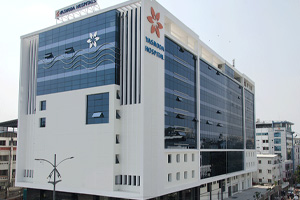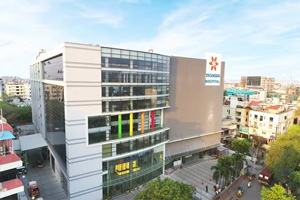What is ileostomy?
An ileostomy is a surgical procedure that changes the way feces leaves the body. It involves creating a stoma on the abdominal wall, typically by bringing up a portion of the small intestine. This stoma collects feces in an ostomy bag. Ileostomies can be temporary or permanent, and there are two main types: end and loop. End ileostomies bring the end of the small intestine through the abdominal wall, while loop ileostomies involve bringing up a loop of the small intestine.
Indications of Ileostomy
Various ileostomy indications include colon cancer, diverticulitis, ulcerative colitis, Crohn’s disease, and blocked or ruptured large intestines. Ileostomy surgery can be performed laparoscopically, using small incisions in the tummy, or openly, with a single larger cut.
| Procedure Name | ileostomy |
|---|---|
| Type of Surgery | Open or Laparoscopic |
| Type of Anesthesia | General anesthesia |
| Procedure Duration | 1 to 3 hours |
| Recovery Duration | Few weeks |
ileostomy: Pre-Op & Post-Op Care
Preparation for Ileostomy
Before an ileostomy procedure, the surgeon will provide instructions for preparation, which may include taking laxatives or using an enema to cleanse the bowels. Fasting and following specific dietary guidelines are typically advised. Clear liquids are recommended, with water avoided for 12 hours prior to surgery.
During the procedure
Under general anesthesia, a surgeon will open the abdomen to find the ileum. They will decide whether to use a large vertical incision or small incisions. Using either the end or loop technique, the surgeon will pull the small intestine up to a new belly hole, suture it, and attach an ostomy bag to the opening. This procedure can be performed with an open or laparoscopic approach.
After Ileostomy Surgery
Following an ileostomy, most patients require hospitalization for a few days to receive medical monitoring, care for and change of the ostomy bag, and to ensure healing.
Ileostomy recovery
An ileostomy is a significant surgery that takes six to eight weeks to recover. Post-surgery, patients typically follow a special soft diet with a list of allowed and forbidden foods. If the patient underwent a temporary ileostomy, healthcare providers will inform about ostomy reversal, typically after healing and regaining anus function.
Post-procedure care
Post-ileostomy surgery guidelines:
- Regular stoma cleaning with warm water and gentle skin cleanser.
- Training on applying and emptying ostomy pouches.
- Initially, a low-fiber diet is recommended to heal the digestive system.
- Gradual reintroduction of foods as per the surgeon’s advice.
- Hydration to prevent dehydration and complications.
- Dietary adjustments to manage output and avoid discomfort.
- Exercise regularly and take prescribed medications.
- Scheduling regular follow-up appointments.
Benefits of ileostomy at Yashoda Hospitals
- Enhances control over bowel movements, reducing urgency and unpredictability.
- Provides pain relief for severe pain from inflammatory bowel disease or blockages.
- Facilitates healing and recovery for conditions like inflammatory bowel diseases.
- Possibility for reversal after colon healing.
- Minimal hospitalisations with no blood loss.































 Appointment
Appointment WhatsApp
WhatsApp Call
Call More
More